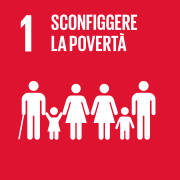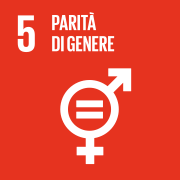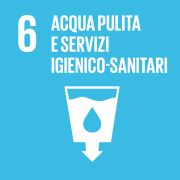
Sustainability is not the end of digital transformation, but a structural and enabling principle, and the same applies to cybersecurity, a topic that has a strong interconnection with sustainability. Gyala, a security vendor that develops modular, scalable and customisable cyber security solutions, is convinced of this and, as part of its commitment to digital sustainability, has decided to join the Foundation for Digital Sustainability network.
Talking to us about this new partnership, and the company’s vision of innovation, security and sustainability, is Carmine Caretta, CFO and HR Manager at Gyala and new member of the Foundation’s Steering Committee. After graduating in Economics from Rome’s Sapienza University, his desire for knowledge and experience led him to hold various operational and management roles in different company divisions, with a particular focus on Finance and Personnel Management. Since 2022, he has held the position of CFO and HR Manager at Gyala, after more than 15 years’ experience at Interconsulting, a software engineering company for the defence market.
Security as the foundation of digital sustainability
For Gyala, sustainability means first and foremost responsibility in the use of digital technologies.“We are an Italian cybersecurity vendor that develops modular and highly scalable solutions, capable of adapting to the real operational context,” explained Carmine Caretta. “Sustainability, for us, is to ensure the resilience of IT and OT infrastructures without wasting human, energy or computational resources, favouring a data-driven and automated approach to incident management.” A vision, therefore, that is not limited to environmental efficiency alone, but extends to the very design of digital solutions:‘we conceive sustainability not as an ethical appendage, but as a structural principle of technological design and innovation: protecting without overloading, ensuring continuity without waste and enabling innovation without compromising on security‘.
And it is from this vision that, for the company, the issue of digital sustainability takes on strategic significance: “for us, it is the balance between technological innovation, security and continuity of services,” he continued. “Sustainability, in our field, is not limited to reducing environmental impact – which is absolutely important – but also extends to being able to offer organisations technology that enables them to withstand cyber attacks, without disrupting their critical processes, while protecting people, data and infrastructure. A resilient IT/OT architecture is a prerequisite for sustainable digital development: without security, digital transformation becomes fragile‘.
In other words, today there is no security without sustainability, just as there is no sustainability without security. “Our experience in the most critical sectors, from national defence to energy utilities, via healthcare and industry, has taught us that the continuous availability of services and the reduction of risk are key elements for any digital transformation strategy. We believe that any technological intervention must be designed to last, be maintainable, integrable and, above all, affordable in terms of the resources required. We want to embrace and advance the vision of simplifying, automating and making cyber defence more useful to the sustainability paradigm as well‘.
Cybersecurity and Digital Sustainability, an underestimated convergence
It is precisely this approach that prompted Gyala to join the Foundation for Digital Sustainability network: the aim, as Carmine Caretta emphasised, is to strengthen interdisciplinary dialogue, and contribute to the understanding of the profound link between sustainability and cybersecurity.
“We chose to join the Foundation for Digital Sustainability because we believe in an all-round approach: cybersecurity is an element that is too often overlooked in digital sustainability agendas, and we want to help turn the spotlight on this strategic convergence. Joining the network allows us to dialogue with other realities committed to the same objective but on different markets, terrains and dynamics, and this will help us to better understand how we can improve, accelerate our experience and, perhaps, contribute to the many projects that have a real impact on public administrations, businesses and citizens“.
Towards a new security culture
According to Gyala, therefore, sustainability and cybersecurity are two interdependent and fundamental dimensions of digital development.“Digital sustainability, understood as the ability to maintain a secure, fair, resilient and functional technological system over time, cannot be separated from a culture of data protection, business continuity and systemic risk reduction.”
Hence the commitment to promote a safety culture that is not only technical but also strategic and organisational: a change in which Gyala intends to be an active participant.“Safety culture is not just a technical issue, but first and foremost a cultural, organisational and strategic one. It is not an emergency need to be addressed a posteriori, but an enabling condition for any sustainable innovation process. The dissemination of this awareness requires a profound cultural transformation, and we would like to contribute not only with technological expertise, but also with a commitment to disseminating knowledge, promoting virtuous operating models, and supporting a new security literacy‘.
A concrete example, in this direction, is the research Sustainability and Cyber Security, carried out in collaboration with the Foundation for Digital Sustainability. “This research is representing a real strategic and operational tool for us: it is fundamental not only for what it tells us, but above all for how it changes the way we look at digital innovation,” emphasised Carmine Caretta. “Framing cybersecurity in a sustainability perspective has led us to go beyond the technological and sectoral vision of security, to recognise its systemic, enabling and strategic value.
It has, for us, the merit of putting before our eyes the connection between traditionally separate disciplines and stakeholders: engineering, IT, environmental sustainability, law, work organisation. It is only from this kind of contamination that truly transformative and inclusive models of innovation can emerge‘.
















